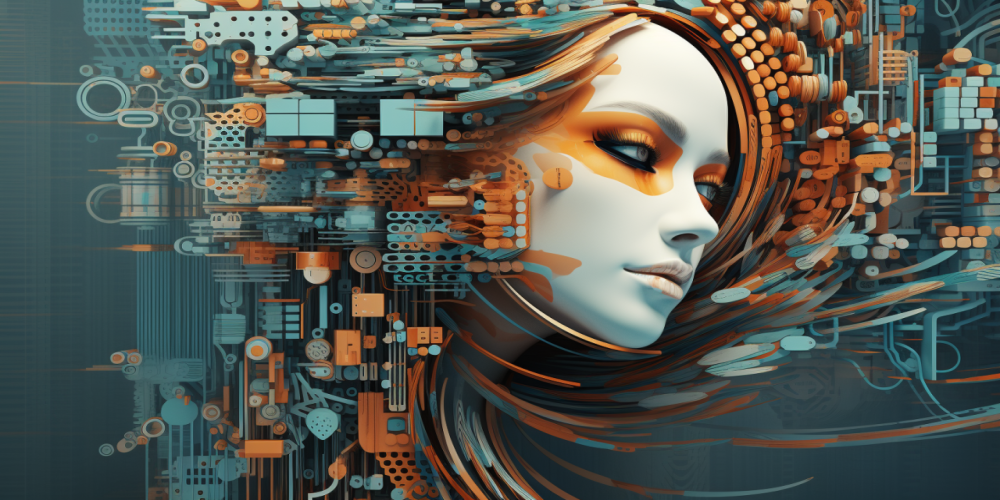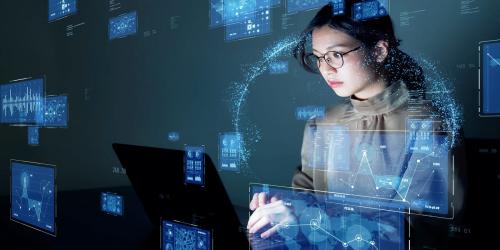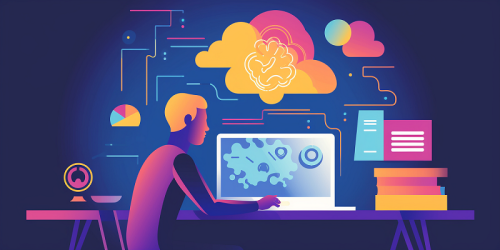
The Future of AI Tools: Revolutionizing Industries and Daily Life
The future of AI tools is poised to be transformative, impacting nearly every aspect of our lives, from the way we work to how we communicate, create, and make decisions. As AI technology continues to evolve, AI tools are expected to become more advanced, accessible, and seamlessly integrated into various industries. In this exploration of the future of AI tools, we’ll look at key trends, potential applications, and the challenges that come with this rapidly advancing technology.
1. Increased Automation Across Industries
One of the most significant trends in the future of AI tools is the increasing level of automation across industries. AI is already automating repetitive tasks in sectors like manufacturing, finance, and customer service, but its capabilities will expand to handle more complex, cognitive tasks.
Manufacturing and Logistics: AI-driven robots and intelligent systems will take over more roles in factories, warehouses, and supply chains. Predictive maintenance, automated quality control, and AI-optimized logistics will improve efficiency and reduce downtime.
Healthcare: AI tools will enhance diagnostic processes, automate administrative tasks, and even assist in surgeries. AI systems can analyze medical data faster than humans, identify patterns, and recommend treatments with a high degree of accuracy, freeing up healthcare professionals for more critical tasks.
Finance: AI will further automate tasks like fraud detection, trading, and financial planning. AI-driven financial tools will allow for real-time analysis of market trends, enabling better decision-making for both companies and individuals.
Legal Industry: AI tools that can scan legal documents, interpret regulations, and even draft legal opinions will transform law firms. Legal research will become faster and more accurate, helping lawyers focus on more strategic aspects of their work.
2. AI as a Collaborative Partner
As AI tools grow more sophisticated, they will evolve from being mere tools to collaborative partners in work and creative processes. AI is expected to enhance human capabilities, helping people make better decisions, be more creative, and solve complex problems more efficiently.
Creative Fields: In the future, AI tools will assist artists, musicians, writers, and filmmakers in generating new ideas, visualizing concepts, and even creating content. These tools will not replace human creativity but augment it, making it easier to explore multiple creative directions quickly.
Business Decision Making: AI tools will act as advisors for executives and managers. Predictive analytics, decision-making algorithms, and AI-driven simulations will provide insights into market trends, customer behavior, and potential business opportunities. This collaboration will enable companies to make data-driven decisions faster and more accurately.
Education and Training: AI-powered tools will enhance personalized learning by identifying individual learning patterns, strengths, and weaknesses. Teachers and trainers will collaborate with AI to create customized educational experiences for each student, leading to better learning outcomes.
3. Natural Language Processing (NLP) and AI Assistants
The development of Natural Language Processing (NLP) is transforming how we interact with machines. In the future, AI tools will be able to understand and respond to human language more naturally and accurately, leading to more advanced virtual assistants and conversational AI.
Smarter Virtual Assistants: Tools like Siri, Alexa, and Google Assistant will evolve to become more intelligent and capable of handling increasingly complex tasks. These AI assistants will serve as personal managers, helping users organize their lives, manage schedules, and even provide health or financial advice based on user preferences and history.
Multilingual Communication: AI tools will become proficient in real-time language translation, breaking down language barriers in international communication. This will have a profound impact on global business, education, and diplomacy, enabling seamless collaboration between people from different linguistic backgrounds.
Enhanced Customer Service: NLP-driven chatbots will become more human-like, capable of understanding nuanced queries and offering personalized responses. This will enhance the customer experience in e-commerce, banking, healthcare, and other industries where timely and accurate support is critical.
4. Generative AI and Creativity Tools
Generative AI, which can create content like text, images, music, and video, will become a dominant force in creative industries. Tools like OpenAI’s GPT, DALL-E, and similar models will become more sophisticated and accessible, allowing creators to generate high-quality content in a fraction of the time.
Art and Design: AI will enable artists and designers to explore new artistic styles, automate repetitive tasks, and even collaborate with AI models to create unique works of art. This will democratize creativity, allowing people without formal training to engage in design and art.
Content Creation for Businesses: AI-driven tools will be increasingly used to create marketing content, write reports, and produce videos. AI-generated content will allow businesses to scale their creative efforts, generating thousands of personalized ads, blogs, and social media posts in real-time.
Music and Entertainment: AI tools will compose music, write scripts, and even generate entire video games or movies. Musicians and filmmakers will use AI to generate new ideas, score soundtracks, and visualize scenes before they’re shot.
5. AI in Ethics and Governance
As AI tools become more embedded in society, ethical considerations and governance structures will need to evolve. Future AI systems will require transparency, fairness, and accountability to prevent biases and ensure ethical use.
Bias Reduction: Developers will focus on creating AI tools that are free from biases, ensuring that decisions in areas like hiring, law enforcement, and lending are fair and equitable. AI models will be trained on more diverse datasets to ensure that their outputs are not skewed by gender, race, or socio-economic status.
AI Governance: Governments and organizations will develop stronger regulatory frameworks to oversee the use of AI. These regulations will focus on ensuring that AI is used ethically and responsibly, especially in areas like surveillance, data privacy, and autonomous systems.
Trustworthy AI: As AI tools become more autonomous, building trust between humans and AI systems will be crucial. AI developers will focus on creating systems that are transparent and explainable, allowing users to understand how AI arrives at its decisions.
6. The Democratization of AI Tools
As AI technology becomes more advanced, it will also become more accessible. In the future, AI tools will be available to a wider range of users, including small businesses, entrepreneurs, and individuals. This democratization will empower more people to leverage AI in their everyday lives.
Low-Code/No-Code AI Platforms: AI development platforms that require little to no coding knowledge will allow more people to create AI-driven applications. This will make it easier for non-technical users to integrate AI into their businesses or personal projects.
AI in Everyday Life: AI tools will be integrated into common household devices, wearables, and smart environments. AI will enhance home automation, assist with daily tasks like cooking and cleaning, and even monitor health conditions in real time.
Educational Access: As AI tools become more affordable, they will be used widely in education, helping students from all backgrounds access personalized learning resources and opportunities that were previously available only to the wealthy or privileged.
7. AI and Human Augmentation
Looking further ahead, AI tools will likely merge with human biology in what’s known as
human augmentation. This will take the form of AI-powered prosthetics, brain-computer interfaces, and other technologies that enhance human capabilities.
Health and Medicine: AI will enhance medical treatments through the development of smart prosthetics and brain implants that can help restore lost functions or augment human abilities. Patients with neurological disorders may benefit from AI-powered treatments that help restore mobility or cognitive function.
Enhanced Cognitive Abilities: AI-driven brain-computer interfaces will allow humans to interact with machines in new ways, enabling faster communication, enhanced memory, and quicker problem-solving skills.
Challenges and Ethical Considerations
The future of AI tools, while promising, also presents significant challenges:
Job Displacement: As AI automates more tasks, many industries will face the risk of job displacement. Reskilling and upskilling the workforce will be crucial to mitigate this issue.
Bias and Fairness: Despite advances, ensuring that AI tools are unbiased and fair will remain a key concern. Bias in data and algorithms can lead to unfair outcomes in critical areas such as hiring, policing, and lending.
Privacy and Security: As AI tools handle more personal data, ensuring data privacy and cybersecurity will be critical to prevent misuse or breaches.
Conclusion
The future of AI tools is bright, with the potential to revolutionize industries, enhance creativity, and improve daily life. As AI becomes more integrated into the fabric of society, it will augment human capabilities, automate complex tasks, and empower individuals across the globe. However, realizing the full potential of AI will require thoughtful governance, ethical considerations, and a focus on inclusivity and fairness.


